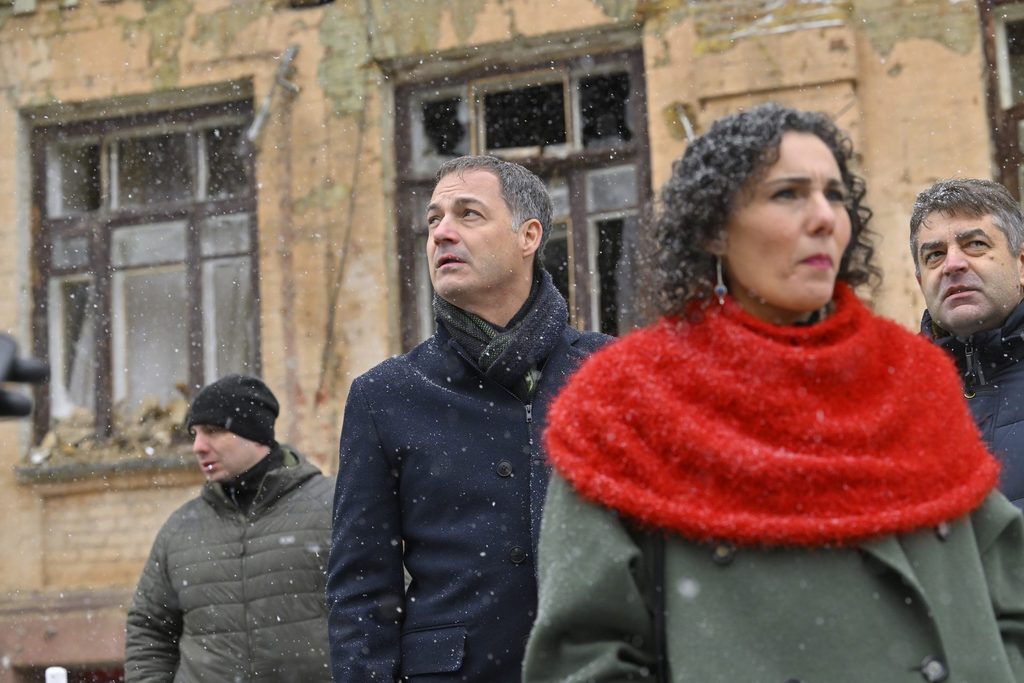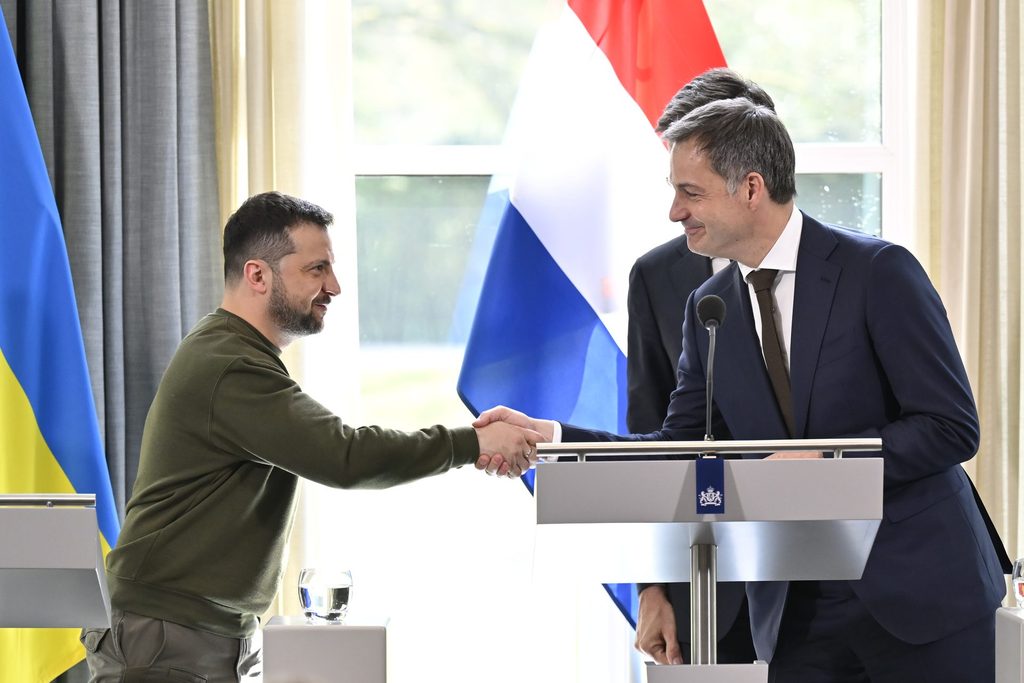Belgium has earned significantly more in taxes on frozen Russian assets than it has spent on aid to Ukraine since Moscow's full-scale invasion of its neighbour in February last year.
According to the most recent figures released by its Ministry of Foreign Affairs, Belgium has sent a total of €423.61 million in aid to Kyiv since February 2022. The vast majority of this (€290.1 million) has consisted of military support.
During this period, however, Belgium has earned an estimated total of €625 million in taxes on interest generated by frozen Russian assets.
Belgium's windfall is explained by the fact that roughly two-thirds (€196.6 billion) of the Russian assets frozen by Western countries after Moscow's invasion are based at Euroclear, a Belgian financial services company which plays a key role in the international banking system.
'We are making money from this war'
Belgian Prime Minister Alexander De Croo (Open VLD) has previously stated that the money generated by frozen Russian assets would be used to support Kyiv in the ongoing conflict. "We have a very strict rule for this money," De Croo said in April. "This additional income will only be used for Ukraine."

Prime Minister Alexander De Croo and Foreign minister Hadja Lahbib pictured during a visit to bombed buildings on Triokhsviatytelska street in the city centre of Kyiv in November 2022. Credit: Belga / Philip Reynaers
However, other Belgian officials have expressed dismay at the major discrepancy between Belgium's Russia-linked earnings and its support to Kyiv, with one politician going so far as to claim that it is "indecent" that Belgium is effectively profiting from the war.
Speaking to La Dernière Heure, Belgian Federal MP Georges Dallemagne (Les Engagés) also highlighted the fact that the aid provided by Belgium to Ukraine is small in both absolute and proportional terms compared to Kyiv's other Western backers.
"Our country... could do much more in view of its capabilities," he said. "We are making money from this war. We are the only country to make more from this war than what we contribute in military and humanitarian aid."
Related News
- 'Money into Putin's pockets': Belgium is world's third largest importer of Russian LNG
- Military expert claims Belgium not providing Ukraine with F-16s over fears of escalation
The MP's remarks are partially corroborated by the Kiel Institute, a German think tank, which notes that Belgium ranks 20th out of 41 countries in total aid provided to Ukraine and only 25th as a proportion of GDP.
Dallemagne's comments were published in the same week that environmental and human rights NGO Global Witness reported that Belgium is now the world's third largest importer of Russian liquefied natural gas (LNG), rising four places since 2021.
The study also found that the EU as a whole has significantly increased its imports of the Russian fossil fuel over the past two years. Between January and July 2023, EU countries bought 22 million cubic metres (mcm) of Russian LNG: 7 mcm more than over the same period in 2021.
"Europe's fossil gas-based energy system is a climate disaster and security risk, funding warmongering regimes and fuelling deadly extreme weather," said Jonathan Noronha-Gant, a senior fossil fuel campaigner at the NGO. "While European countries decry the war, they are putting money into [Russian President Vladimir] Putin's pockets."

